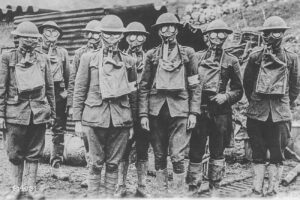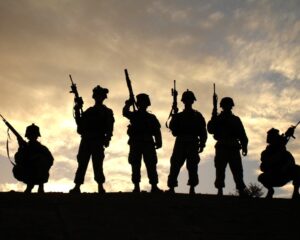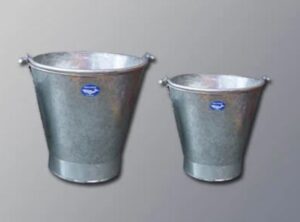american soldiers
 The initials “G.I.” bring a picture of a US soldier for most people They aren’t viewed as glamorous, and usually look like they have just crawled out of the trenches somewhere, but never is there a shred of doubt as to their toughness. The name, American G.I. is synonymous with “American infantryman.” Really, everything American Military was tagged G.I. When soldiers returned from World War II and now other wars or even non-wartime military service are eligible for the benefits of the “G.I.” Bill, including education. In fact, it was often the G.I. Bill that drew young recruits into the service in the first place. Let’s face it, college is expensive, and three years of service seems a small price to pay.
The initials “G.I.” bring a picture of a US soldier for most people They aren’t viewed as glamorous, and usually look like they have just crawled out of the trenches somewhere, but never is there a shred of doubt as to their toughness. The name, American G.I. is synonymous with “American infantryman.” Really, everything American Military was tagged G.I. When soldiers returned from World War II and now other wars or even non-wartime military service are eligible for the benefits of the “G.I.” Bill, including education. In fact, it was often the G.I. Bill that drew young recruits into the service in the first place. Let’s face it, college is expensive, and three years of service seems a small price to pay.
The American soldier was, and for patriots of our day is one of the most loved and respected groups of people  in the United States. They even inspired one of most popular toys in the 1960s and 1980s. the G.I. Joe doll, and later, G.I. Jane, inspired by Demi Moore in her movie with the same name. The dolls and the movie brought the G.I. Joe and Jane dolls to a whole new generation of kids.
in the United States. They even inspired one of most popular toys in the 1960s and 1980s. the G.I. Joe doll, and later, G.I. Jane, inspired by Demi Moore in her movie with the same name. The dolls and the movie brought the G.I. Joe and Jane dolls to a whole new generation of kids.
We all know about the G.I. dolls and soldiers, but do we know what G.I. means? Most of us truly don’t. Many people probably assumed it was something along the lines of “Government Infantry,” “General Infantry,” or perhaps a “Government Issue” label stamped on military rations and equipment. Those are good guesses, but they are also wrong. In fact, “G.I.” stands for “Galvanized Iron.” While that sounds like a tough thing, and  maybe that is to say that the soldiers were tough, the reality is that the name comes from something entirely different…and totally not exciting, tough, or even cool. In the early 20th century, believe it or not…military trash cans and buckets were stamped with the initials G.I. It wasn’t because they belonged to the military. but simply because galvanized iron was the material from which the cans and buckets were made. So, during World War I, the initials became a proxy for all things to do with infantry, and the usage stuck. So, I guess we can banish the initials, accept it as all things military, or maybe embrace the term as being the toughest of the tough and the strongest of the strong. I think I like the last one the best.
maybe that is to say that the soldiers were tough, the reality is that the name comes from something entirely different…and totally not exciting, tough, or even cool. In the early 20th century, believe it or not…military trash cans and buckets were stamped with the initials G.I. It wasn’t because they belonged to the military. but simply because galvanized iron was the material from which the cans and buckets were made. So, during World War I, the initials became a proxy for all things to do with infantry, and the usage stuck. So, I guess we can banish the initials, accept it as all things military, or maybe embrace the term as being the toughest of the tough and the strongest of the strong. I think I like the last one the best.
 In this day of the internet, cell phones, television, and radio, a new form of patriotism has emerged. The rights our American soldiers fought for are in peril. In a year in which many Americans were offended by literally everything, and the internet, specifically Facebook, has become one of the greatest sounding boards there is, everyone has stepped up to the plate to state their views and yes, even to hear the views of others. Of course, hearing the views of other people, is not always something that is well received. Sometimes, people lose sight of the fact that since we each own our own Facebook page, we also have the right to say what we want to say. Others may not agree, but that doesn’t matter, because this is our page…our right to free speech.
In this day of the internet, cell phones, television, and radio, a new form of patriotism has emerged. The rights our American soldiers fought for are in peril. In a year in which many Americans were offended by literally everything, and the internet, specifically Facebook, has become one of the greatest sounding boards there is, everyone has stepped up to the plate to state their views and yes, even to hear the views of others. Of course, hearing the views of other people, is not always something that is well received. Sometimes, people lose sight of the fact that since we each own our own Facebook page, we also have the right to say what we want to say. Others may not agree, but that doesn’t matter, because this is our page…our right to free speech.

Of course, people with differing views have the right to challenge our views…to state their own case, as it were, but they don’t have the right to challenge our right to speak our own opinion on our own page. If we are offended by the views of another person, we need to move past the post. Never is this more evident than when the opinions of one person in a family offends another, and they decided to take things to the next level…unfriending. I won’t do that, because while I will state my opinion, and I will respect the rights of my friends to post what they choose, and to debate my opinion, the family connection is far too important to me to argue in  such a way.
such a way.
In history, patriots had to go to the place they were going to protest. And of course, by the time they could get there, it was probably too late to protest. I suppose maybe our politicians were more honest back then, or maybe we just didn’t know all that was going on. It has been said that some presidents would never have been elected if we could have seen them. That is so true, and sometimes I think maybe that should be how it is today. If race, gender, and maybe even party affiliation weren’t able to be seen, who would we elect? That might be something to think about. Maybe we need to stop giving a pass because of race or gender, and make the politicians do what’s right.

